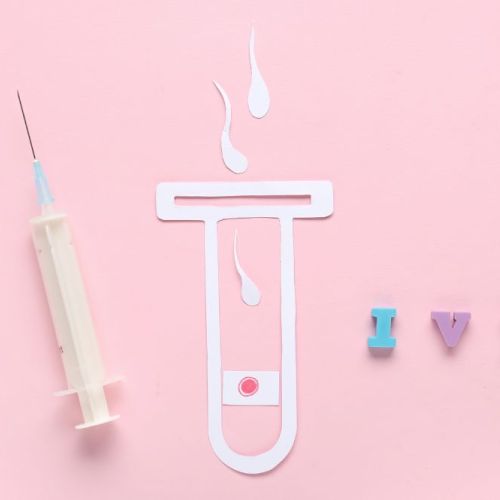Oncofertility

California Center for Reproductive Health is a proud partner with LIVESTRONG Foundation and Oncofertility Consortium. Our mission is to increase awareness and optimize accessibility to fertility preservation options for female patients diagnosed with cancer.
Cancer treatment can cause infertility and pretty much all modes of cancer treatment including
chemotherapy, radiation, and surgery have the potential to affect future fertility.
Treatment effects range from immediate (acute) ovarian failure to infertility despite continued periods (due to loss of eggs and damage to remaining eggs) to early menopause and a shortened reproductive lifespan.
The American Society of Clinical Oncology advises all health care providers to address the possibility of infertility with patients.
Dr. Mor and Dr. Woo at CCRH are passionate in addressing concerns and correcting misconceptions regarding ovarian stimulation for cancer patients.
Myth#1-There is insufficient time.
Fact- With an expedited protocol, approximately 2 weeks is required from start to finish.
Patients do not need to wait until their period to start a cycle of stimulation. Patients can start stimulation regardless of phase of menstrual cycle. Random start stimulation does require 1-2 more days of hormone injections, but there are no differences in the number of eggs retrieved or embryos created.
Myth#2-In patients with hormonally sensitive breast cancer, the high estrogen levels during IVF may stimulate malignant cells.
Fact-It is not known what peak level is safe in patients with breast cancer. Protocols designed specifically for breast cancer patients have shown to be safe. In large studies of women diagnosed with breast cancer, those that chose to pursue fertility preservation compared to those who did not, had similar rates of breast cancer recurrence.
Myth#3-I don’t have a partner, and freezing eggs is not as good as freezing embryos.
Fact-With advanced in vitro technology—vitrification, eggs are frozen in a glass like state without damage of water crystal formation. Frozen eggs and frozen embryos result in similar pregnancy rates.
Myth#4-It is not safe to carry a pregnancy after cancer.
Fact-Current studies do not indicate increased risk of recurrence or decreased risk of survival even in women with hormonally sensitive tumors.
Myth#5-I cannot afford fertility preservation treatments.
Fact-There are multiple pharmaceutical companies that provide free medications for oncofertility patients. As partners with LIVESTRONG, California Center for Reproductive Health provides significantly discounted treatment cycles.
Improvements in cancer therapy has led to improved overall survival. Future family building is a significant quality of life issue after cancer. Safe and effective methods for fertility preservation exist. Please call our clinic for more information.
Eliran Mor, MD
Reproductive Endocrinologist located in Encino, Valencia & West Hollywood, CA
FAQ
What does a reproductive endocrinologist and infertility specialist do?
Reproductive endocrinology and Infertility is a sub-specialty of Obstetrics and Gynecology. In addition to managing medical and surgical treatment of disorders of the female reproductive tract, reproductive endocrinologist and infertility (REI) specialists undergo additional years of training to provide fertility treatments using assisted reproductive technology (ART) such as in vitro fertilization.
Reproductive endocrinologists receive board certification by the American Board of Obstetrics and Gynecology in both Obstetrics and Gynecology and Reproductive Endocrinology and Infertility.
When should I see an REI specialist?
In general, patients should consider consulting with an REI specialist after one year of trying unsuccessfully to achieve pregnancy. The chance of conceiving every month is around 20%, therefore after a full year of trying approximately 15% of couples will still not have achieved a pregnancy.
However, if a woman is over the age of 35 it would be reasonable to see a fertility specialist earlier, typically after 6 months of trying.
Other candidates to seek earlier treatment are women who have irregular menses, endometriosis, fibroids, polycystic ovary syndrome (PCOS), women who have had 2 or more miscarriages, or problems with the fallopian tubes (prior ectopic pregnancy).
What are the reasons we are having trouble conceiving?
Approximately 1/3 of the time cause for infertility is a female factor, 1/3 of the time a male factor, and the remaining 1/3 a couples’ factor.
At CCRH, we emphasize the importance of establishing a correct diagnosis. Both partners undergo a comprehensive evaluation including a medical history and physical exam.
Furthremore, the woman’s ovarian reserve is assessed with a pelvic ultrasound and a hormonal profile. A hysterosalpingogram (HSG) will confirm fallopian tube patency and the uterine cavity is free of intracavitary lesions. A semen analysis is also obtained to evaluate for concentration, motility, and morphology of the sperm.
Additional work up is then individualized to direct the best possible treatment option for each couple.
What is IVF? What is the process like?
In vitro fertilization (IVF) is the process that involves fertilization of an egg outside of a woman’s body.
The process starts with fertility drugs prescribed to help stimulate egg development. In your natural cycle, your body is only able to grow one dominant egg, but with stimulation medication we can recruit multiple eggs to continue to grow. After about 8-10 days of stimulation, the eggs are surgically retrieved and then fertilized with sperm in a specialized laboratory. Fertilized eggs are then cultured under a strictly controlled environment within specialized incubators in the IVF laboratory for 3-5 days while they develop as embryos. Finally, embryos (or an embryo) are transferred into the uterine cavity for implantation.
Should I have IVF?
Before deciding if IVF is the right choice, it’s important to sit down with an REI specialist to discuss available treatment options. For some people, other methods such as fertility drugs, intrauterine insemination (IUI) may be the best first choice treatment. At CCRH, we believe each individual couple is unique and not everyone needs IVF.
Is the IVF procedure painful?
While not painful, the fertility medications may some side effects including headaches, hot flashes, mood swings, and bloating. The injection sites may also bruise.
Will IVF guarantee a baby?
Unfortunately, no. Many people think once they start IVF it’s a matter of time that they will be pregnant and have a baby. But according to national statistics per the Society of Assisted Reproduction (SART), on average 40% of assisted reproduction cycles achieve live births in women under age 35. The chances of success then continue to decrease with advancing age.
At CCRH, we employ only evidence-based interventions to ensure patient safety and optimal outcome. While we cannot guarantee a baby, we guarantee that you will receive the best, most advanced, personalized care to help you maximize your chance of a baby.
What is the success rate for IVF?
The average IVF success rate (success measured in live birth rate) using one’s own eggs begins to drop around age 35 and then rapidly after age 40. This is due to the decline in egg quantity and egg quality as a woman ages.
Our clinic’s success rate consistently beats the national average year after year.
Do insurance plans cover infertility treatment? How much does IVF cost?
Individual insurance plans often do not have any coverage for infertility treatments. If you have a group plan, you can call members services to see if they have coverage for infertility (including consultation/workup and IVF).
After your consultation with our REI specialist, one of our dedicated account managers with sit with you to go over the cost of treatment.




